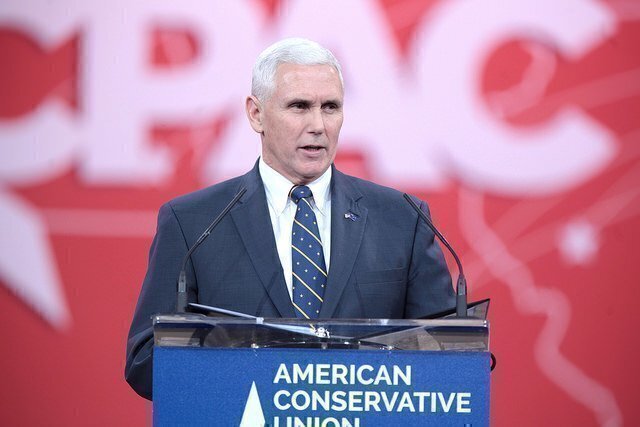
After a week of conflicting news reports and a tragedy in Nice, France that delayed a formal announcement, presumptive Republican presidential nominee Donald Trump took to Twitter to name Indiana Governor Mike Pence as his vice presidential running mate.
In recent days, leading candidates for the prized spot reportedly included New Jersey Governor Chris Christie, former Speaker of the House Newt Gingrich, retired Lieutenant General Michael Flynn, and even former Secretary of State Condoleeza Rice. In the end, Trump chose the conservative governor of a Midwestern state that went for President Barack Obama in 2008 and former Massachusetts Governor Mitt Romney in 2012, a man whose upbringing and policy record sometimes contrast with the top of the ticket.
I am pleased to announce that I have chosen Governor Mike Pence as my Vice Presidential running mate. News conference tomorrow at 11:00 A.M.
— Donald J. Trump (@realDonaldTrump) July 15, 2016
Michael Richard Pence was born and raised in the state he still calls home, earning his undergraduate and law degrees from Indiana universities. He grew up in a Democratic household, but shifted in his politics while in college. Later, Pence practiced law and eventually turned to a career in talk radio as host of The Mike Pence Show.Honored to join @realDonaldTrump and work to make America great again. https://t.co/J8esm9LU6g
— Mike Pence (@mike_pence) July 15, 2016
In 2000, Pence was elected to the U.S. House of Representatives, where he served until 2013. While in the House, Pence largely towed the party line but opposed bills that would increase the size of government, locking horns with colleagues over No Child Left Behind, the Medicare prescription drug expansion, and the 2008 bank bailouts. He was a member and chairman of the Republican Study Committee, voted in favor of the Iraq invasion, and sought compromise on immigration.
Pence was elected governor of Indiana in 2012, an office he still holds. There, Pence has maintained a strong record of fiscal conservatism while bucking his party to accept the Affordable Care Act’s expansion of Medicaid to the states, albeit with some qualifications.
However, Pence has occasionally invited controversy on constitutional matters. In 2015, in an effort to protect religious freedom in light of growing awareness of and protections for the LGBT community, the proud evangelical governor signed into law a state version of the Religious Freedom Restoration Act, only to approve revisions after a national backlash. That same year, Pence drew heavy fire for a plan to create “JustIN,” a state-funded news service populated by stories from state press secretaries, a plan he ultimately abandoned. And in March, the governor signed into law a ban on abortions obtained because of a fetus’ genetic abnormalities; that law has been blocked by a federal judge and awaits a full ruling.
Pence has also distanced himself from Trump on constitutional issues. He criticized Trump for suggesting that there should be “some form of punishment” for women who obtain abortions and for claiming that the judge overseeing a lawsuit against one of Trump’s businesses could not be impartial because he is of Mexican heritage. Most strikingly, Pence has spoken out against Trump’s proposed temporary ban on Muslim immigration to the United States:
Calls to ban Muslims from entering the U.S. are offensive and unconstitutional. — Governor Mike Pence (@GovPenceIN) December 8, 2015
Our Constitution guarantees the free exercise of religion. The U.S. cannot discriminate on the basis of religion.
— Governor Mike Pence (@GovPenceIN) December 8, 2015
With the vice presidential announcement, Pence is expected to withdraw from the race for governor in Indiana, where he has been locked in a tight race with Democrat John Gregg, a former Speaker of the Indiana House of Representatives. Discussions about who will replace Pence in that important contest are still ongoing.
Nicandro Iannacci is a web content strategist at the National Constitution Center.Recent Stories on Constitution Daily
Why the Supreme Court isn’t compelled to follow a conduct codeClimate change in the courts: Big Oil and Big TobaccoPodcast: Political parties and the Constitution






